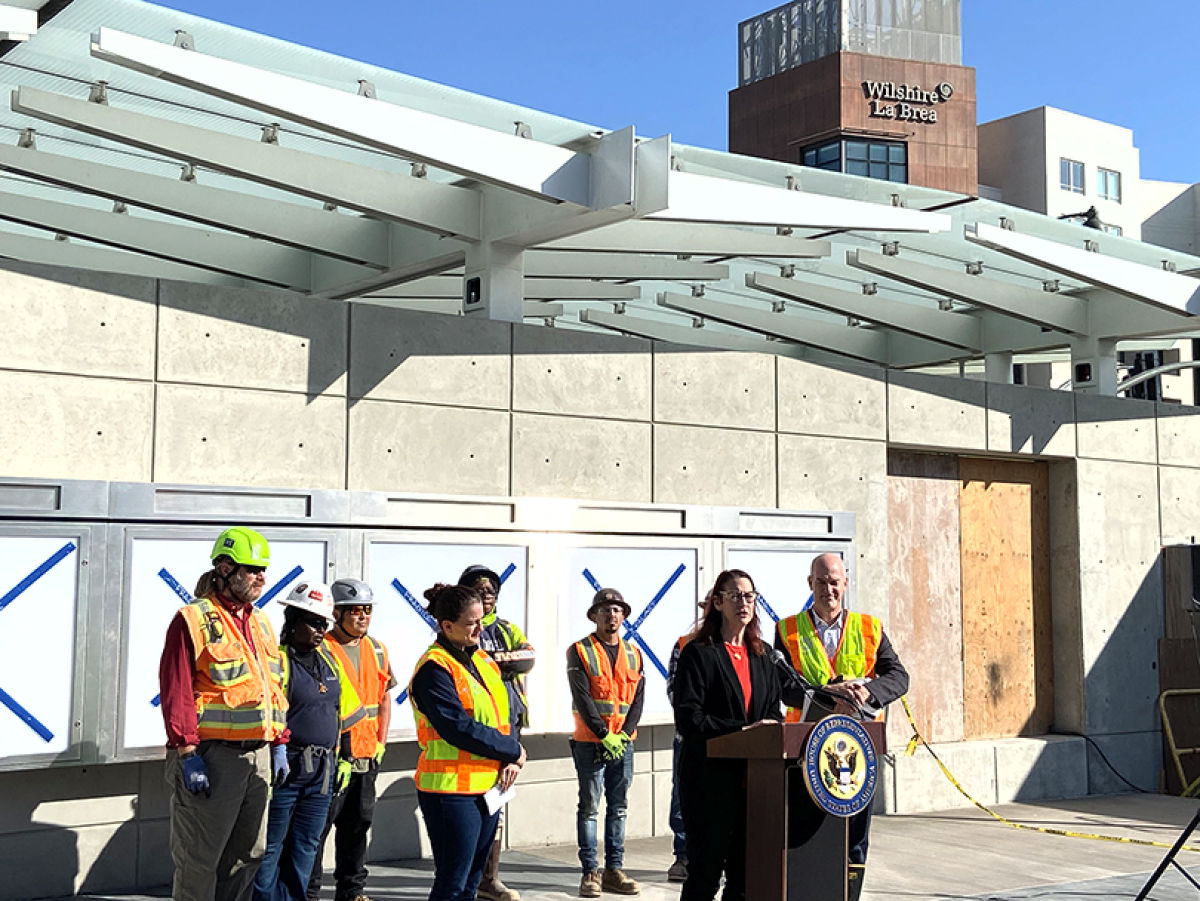Beverly Park Press: Friedman blasts Republicans over spending package vote

U.S. Rep. Laura Friedman (D-Glendale) lambasted House Republicans on March 11 after they refused to consider an amendment she authored and sought to be included in a six-month budgeting plan approved to avoid a government shutdown.
The amendment aimed to stop the Trump administration from illegally withholding or diverting funds appropriated in the legislation by reaffirming Congress’ power to allocate funds. The amendment was co-sponsored by 60 Democratic members of the House of Representatives.
“It is the sense of Congress that in signing legislation, the president recognizes, and states that they will uphold, Congress’ constitutional authority to authorize and appropriate funds and will disburse those funds faithfully and in full as directed in such legislation and in accordance with article II, section 3 of the Constitution. This may not be superseded by any signing statement, public statement or other presidential communication,” Friedman’s amendment read.
The House approved the spending package – without Friedman’s amendment – on March 11 by a 217-213 vote and sent it to the U.S. Senate. Friedman said the failure by House Republicans to even consider the amendment will embolden the Trump administration to cut or reduce more spending for programs and projects.
“Elon Musk and Donald Trump broadly canceling spending that had been appropriated by Congress is unconstitutional. The Constitution very clearly says that Congress, not the president, controls federal spending. That is part of the separation of powers. That’s what the Founding Fathers designed so that we didn’t have one branch making all the important decisions. Presidents cannot pick and choose which Congressionally approved funds they want to spend. And, the Supreme Court has affirmed this in the past,” Friedman said in an interview with the Beverly Press after the vote. “But Trump now is illegally withholding or redirecting taxpayer money without Congress. So my amendment was simply for Congress to state that the president would recognize that this is Congress’ authority and that he will uphold Congress’ authority to authorize and appropriate funds. To me, this would be a no brainer. But this Republican Congress refused to allow that to be brought up for a vote, because they know it will expose Trump as the law breaker that he is.”
Friedman said Trump’s potential cuts to spending will have many impacts, from hospital patients and those who use public transportation to students, seniors and veterans.
“The Republicans are, [and] have been for the past several months, dismantling the government. And when I say the government, I want people to understand what that means. When you go to the hospital and receive advanced cancer treatment, usually that’s through a federally funded study. That money is now gone,” Friedman said. “The list goes on and on. It goes from medical care to education to Head Start programs which give low-income kids a chance to be in a quality preschool while their parents are at work. This isn’t an abstract issue about whether we like or don’t like the government. These are actual services that people in our district receive.”
Friedman held a press conference in February at a subway station on Metro’s D Line subway extension and warned about potential cuts to public transportation projects. While the first two segments of the D Line from Wilshire/Western to Century City/Constellation are fully funded and cannot be cut, there is a potential for funding cuts to impact the third segment of the line to Westwood. Friedman also cited the Trump administration cuts to the Department of Education and the Environmental Protection Agency.
“They’re defunding the EPA – a 65% cut to the EPA budget. That’s the group that’s responsible for keeping pollution out of our water supply,” she added. “And why are they doing this? Not because we’re bankrupt. It’s because they want to give tax breaks to Elon Musk and his billionaire friends.”
The U.S. Senate considered the legislation on March 12 but did not vote on it by press time.